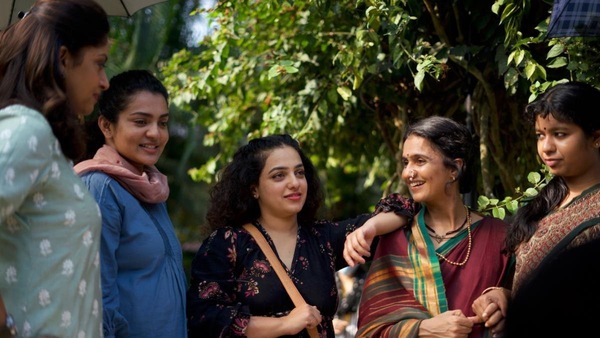Anjali Menon's Wonder Women Could Have Been A YouTube Tutorial
It takes an entire 80 minutes — the runtime of Wonder Women — to register that this superficial and tedious narrative centred on a group of expectant moms is written and directed by Anjali Menon.

Last Updated: 11.59 AM, Nov 19, 2022
When Jaya, the only non-South Indian in an antenatal class asks instructor Nandita to speak in Hindi, the other participants are moderately incensed. But “isn’t Hindi our national language?” a wide-eyed Jaya counters. “Hindi and English are only official languages,” corrects Veni, a Tamilian. And when Jaya refers to “Madrasi” as the language of South India, the other women give her the 101 on the linguistic diversity of the peninsula. Amid this cacophony, Mini screams at the others to “just shut up”.
That’s more or less the emotion a viewer will experience as well, while witnessing this pretentious mayhem. It takes an entire 80 minutes (i.e. the runtime of Wonder Women ) to register that this superficial and tedious narrative centred on a group of expectant moms is written and directed by Anjali Menon.
The narrative primarily unfolds inside Sumana, a prenatal programme run by Nandita (Nadhiya Moidu) at an upmarket locality somewhere in central Kerala. Without much ado, each of the six pregnant women walks in: Veni (Padmapriya), accompanied by her mother-in-law; Bengalurean Nora (Nithya Menen); singer Saya (Sayonara Phillip), whose live-in boyfriend is constantly hovering around her; single mom Mini (Parvathy); the Maharashtrian Jaya (Amruta Subhash) and her concerned husband; and Gracy (Archana Padmini), a staffer at Sumana.
The backstories are unoriginal and lackluster. Veni is a non-practicing lawyer married into a conservative Brahmin household, with an indifferent spouse and a bullying mom-in-law. At the dinner table, she darts furtive glances at her husband — mute appeals for back-up — when her otherwise cantankerous mother-in-law suddenly steps in and announces that her son should support his wife. A silent thank you passes between Veni and her mother-in-law. When Veni’s husband comes to the prenatal class, he has an emotional throwback to the time when he was reprimanded about playing with dolls, and therefore lost his ability to empathise with others.
Meanwhile, Nora’s half-baked narrative involves an apathetic mom, and a husband who is more anxious about ‘losing’ her to motherhood — and ignoring their new café in the bargain. Saya finds her kind boyfriend’s enthusiasm over fatherhood exasperating, a cue for a lame speech about being a “moody, irritable woman”. Gracy, who is on her second pregnancy, is the most experienced in the group. Jaya is jittery as she has already had three miscarriages. And finally there is Mini, who decides to leave her spouse when he tells her to abort their baby.
Also Read: In Anjali Menon's Films, Family Comes First
Anjali Menon doesn’t disrupt a single stereotype as she faithfully applies the elitist gaze to these women and their stories. So you get superficial depictions of female camaraderie in WhatsApp messages where they bicker about nothing in particular and share images of birthing positions. Menon does a serious disservice to single mothers by presenting them as unhappy, morose women who eventually find happiness when reunited with their families. The narrative upholds conventional ideas of families, where you have Nora telling her husband that she will not be the kind of mother who assigns her child to a nanny’s care, nor send them off to a hostel.
The idea that motherhood is the single most joy in a woman’s life is constantly drummed into the viewer. Some scenes from the film — such as the one where the women play with weighted dolls to prepare themselves for handling their newborns — seem like a PSA for antenatal classes. The conflict between Mini and Norah’s characters is laboured and unimpactful, while the physical and emotional struggles of pregnant women are hardly explored beyond the peripheral.
Most of the characters, except for Jaya’s, are underdeveloped, so you simply aren't that invested in their journeys. Some of the casting choices are questionable, especially for the partners of Norah, Gracy and Saya, and there is a colourism inherent in Archana Padmini being cast as the domestic help.
Parvathy is fast getting typecast into the “fierce, independent, complex” mould as an actor, and she hardly adds anything to an already poorly etched character in this film. Padmapriya is endearing, but (once again) let down by the script, and the same goes for Nithya Menen, Sayanora (who gives even her bad lines some heft with her distinctive Kannur accent and delivery) and Archana Padmini. In the final analysis, perhaps Wonder Women would have worked better as a YouTube antenatal tutorial.
